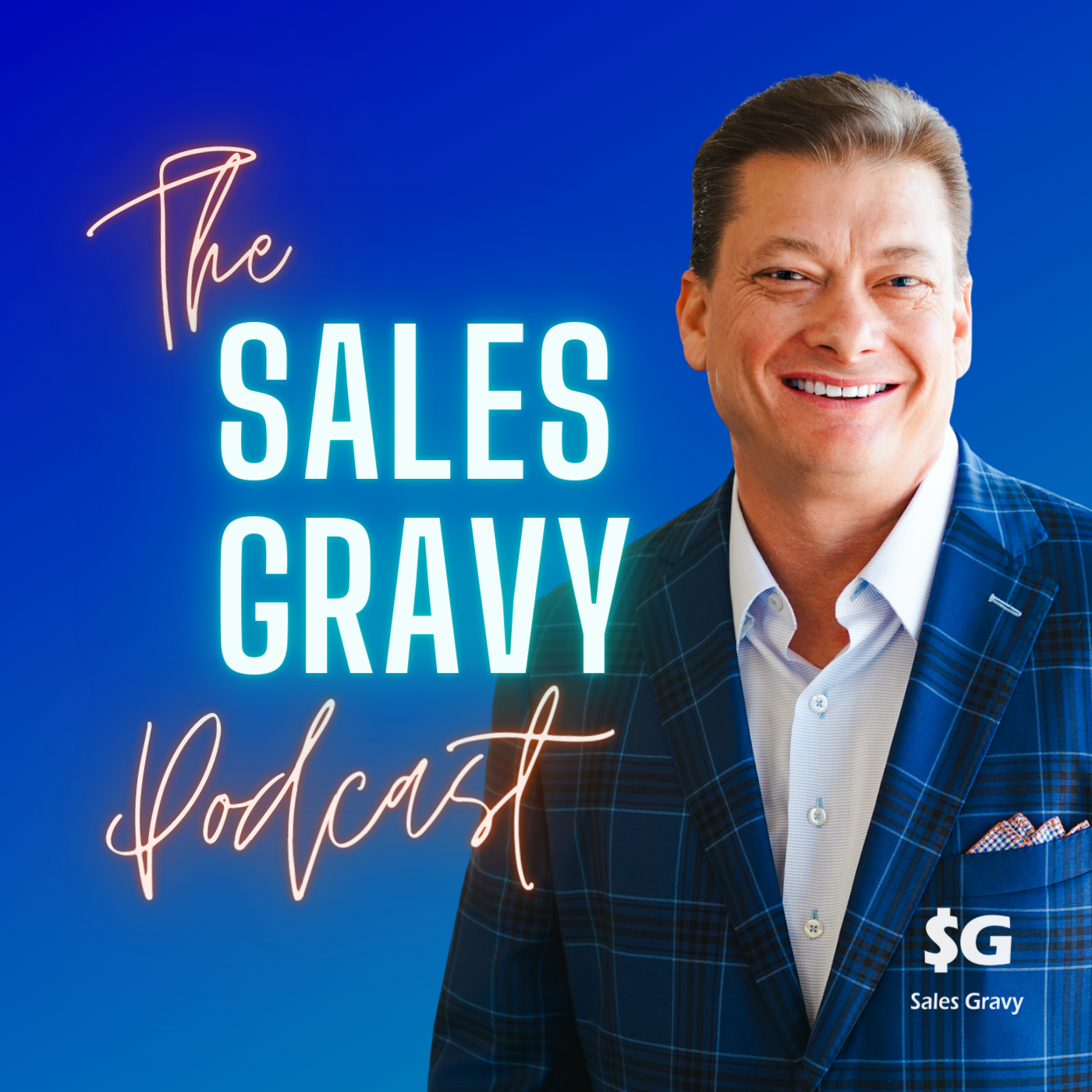

Sales Gravy: Jeb Blount
Jeb Blount
From the author of Fanatical Prospecting and the company that re-invented sales training, the Sales Gravy Podcast helps you win bigger, sell better, elevate your game, and make more money fast.
Episodes
Mentioned books

7 snips
Jan 5, 2025 • 9min
You Can Only Control Three Things (Money Monday)
Kick off the new year with focus and clarity! Exploring the three things within your control—actions, reactions, and mindset—sets you on the path to success. Prioritize impactful choices for your time and revenue generation. Strengthen your discipline to fend off distractions and stay determined. Embrace a proactive mindset, transforming from a 'rain barrel' to a 'rainmaker', and watch your personal and business goals soar. This year is yours to seize!

16 snips
Jan 2, 2025 • 34min
10 Trade Show Lead Follow Up Strategies feat. Harriet Mellor
In this insightful discussion, Harriet Mellor, a renowned sales thought leader and mentor, reveals her top strategies for effective lead follow-up after trade shows. She emphasizes an eight-touchpoint approach over 12 weeks, utilizing diverse channels for maximum outreach. Harriet underscores the importance of patience in sales cycles, which can take 20 months. Personalizing communication and sharing valuable resources are key to fostering relationships. With meticulous tracking of interactions, sales teams can continuously refine their strategies for higher conversion rates.

15 snips
Dec 29, 2024 • 13min
Why Personal Goals are Essential for Sales Discipline (Money Monday)
Personal goals are the secret sauce for maintaining sales discipline. Discover the power of categorizing your aspirations into three buckets: to-have, to-be, and to-do. From acquiring a new home to evolving into a sales leader, each goal type fuels motivation. Experience goals can create unforgettable memories, while structured methods for goal setting ensure accountability. Embrace these insights to transform your sales journey and overcome everyday challenges!

11 snips
Dec 26, 2024 • 28min
Best Sales Podcast Conversations From 2024
Reflecting on a transformative sales year, the conversation emphasizes that objections can lead to stronger relationships. Consistent prospecting is highlighted as key to closing future deals. There's a deep dive into the importance of empathy for meaningful connections with clients. Stories of resilience and personal growth from a Navy SEAL offer inspiration, while insights into AI's role in sales paint an intriguing picture of the future job landscape. The message is clear: adapt, engage, and remain disciplined for success.

9 snips
Dec 19, 2024 • 49min
The Art of Outreach: Strategies for Modern Sales Prospecting feat. Alex Niswander
In this engaging discussion, sales expert Alex Niswander shares his journey from tech support to becoming a top salesperson. He reveals effective strategies for maximizing outreach, such as using multiple touchpoints to engage prospects and leveraging text messaging as a softer follow-up tool. Alex emphasizes the power of personalized video messages and High-Intensity Prospecting sessions for productivity. He also highlights the 90-day prospecting payoff, reminding listeners that consistent efforts build fruitful client relationships.

7 snips
Dec 16, 2024 • 12min
Sell More With a Personal Business Plan (Money Monday)
This discussion emphasizes the importance of having a personal business plan to boost sales success. It highlights how randomness hinders effectiveness and the need for clear goals. Listeners are urged to adopt an entrepreneurial mindset, treating their sales territory like their own business. The insights provide actionable steps for strategic planning, ensuring every day is purposeful rather than drifting aimlessly. Ultimately, it’s about steering your own ship toward desired outcomes instead of hoping for good fortune.

7 snips
Dec 12, 2024 • 1h
Making Sales Connections with Craft Beer feat. Kirk Richardson
Kirk Richardson, author of "Craft Beer Country," shares his insights into the vibrant craft beer industry. He discusses the 13% rise in craft beer market share despite economic challenges and emphasizes the importance of hops for flavor and shelf life. Kirk dives into the historical roots of sour beers from Belgium and how they cater to seasonal preferences. He also busts stereotypes around craft beer enthusiasts, highlighting the community's accessibility and warmth, making craft beer a welcoming experience for everyone.

13 snips
Dec 5, 2024 • 51min
How to Blend AI Automation with Human Connection in Sales feat. Keith Peiris
In this discussion, Keith Peiris, CEO of Tome, dives into the transformative role of AI in sales. He emphasizes the importance of strategic alignment with a prospect's business, shifting focus from demos to effective discovery. Vetting opportunities wisely saves resources, while developing a strong point of view before outreach enhances prospects engagement. Peiris stresses that, despite automation, building genuine human relationships remains crucial for trust and sales success.

6 snips
Dec 2, 2024 • 4min
The Unused Budget Strategy to Sell More at the End of the Year (Money Monday)
As the year wraps up, there's a unique chance for sales professionals to tap into unused budgets. Following a positive election, business leaders are feeling optimistic and ready to spend. By asking clients about their leftover budgets, sales teams can unlock significant opportunities. A recent case study illustrates how effective communication can lead to more deals being closed quickly. It's all about capitalizing on this moment and connecting with clients at the right time!

25 snips
Nov 21, 2024 • 40min
Kristie Jones’ Secret Weapon For Sales Success
Kristie Jones, a sales expert and author of "Selling Your Way In," dives into how positivity fuels decision-making in sales. She stresses the importance of financial transparency for strategic money management and the long-term benefits of planning. Kristie also emphasizes self-awareness, urging listeners to discover their unique sales superpowers. By understanding personal strengths, individuals can maximize their potential. Plus, she shares methods for cultivating a winning mindset and the vital distinction between confidence and self-confidence.


